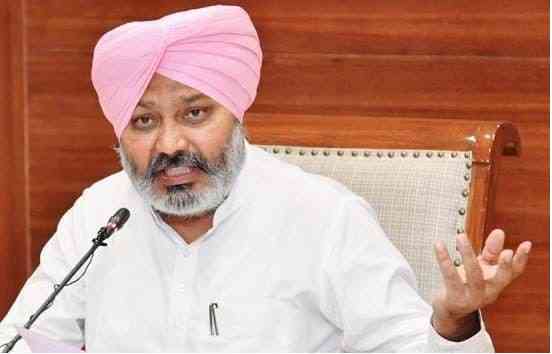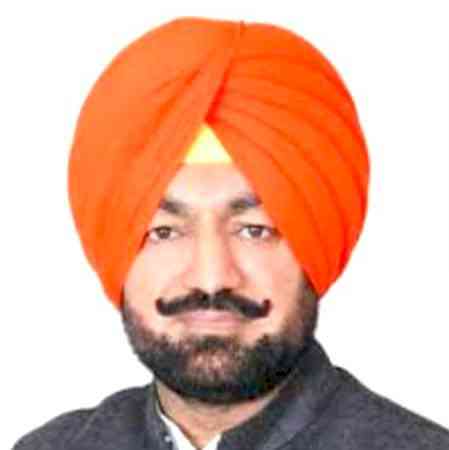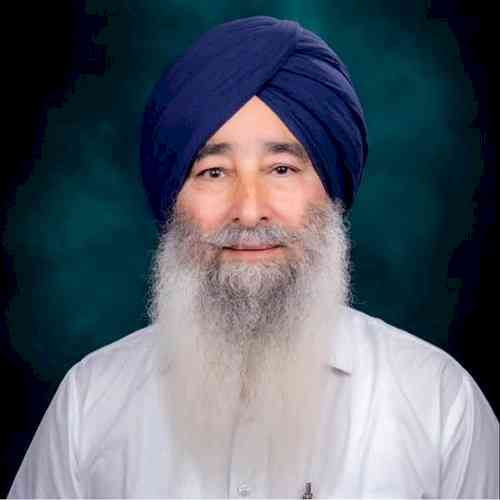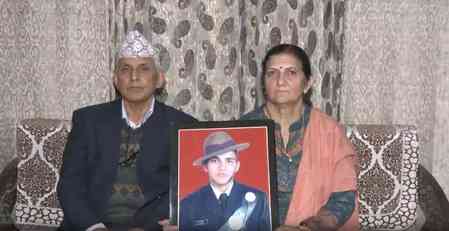Punjab Cabinet okays revision in fee structure in nursing colleges to boost medical education and infrastructural facilities

However, the increase in the fee will be applicable prospectively only to new students joining in the new session from 2020-21 onwards
Chandigarh: To strengthen the medical education and infrastructural facilities at Government and Private medical colleges, the Punjab Cabinet led by Chief Minister Captain Amarinder Singh on Wednesday gave the nod for revision of fee structure in various nursing courses with effect from academic session 2020-21.
However, the increase in the fee will be applicable prospectively only to new students joining in the new session from 2020-21 onwards. All the existing enrolled students will continue to pay at old rates for the full course.
A spokesperson of the Chief Minister’s Office said that the revision has been proposed with regard to ANM Nursing course in Government/Private nursing colleges, BSc nursing (Basic) and BSc nursing (Post Basic) in private colleges of the State.
This is in accordance with the recommendations of a committee constituted under Principal Secretary, Medical Education and Research Department on January 29, 2020 by the Medical Education and Research Department, in compliance of the orders passed on August 2, 2017 by the Punjab and Haryana High Court in the matter of Civil Writ Petition no. 24359 of 2016-Nursing Training Institutes Association, Punjab.
The spokesperson further said that the committee, after detailed deliberations on March 23, 2020 and keeping in view the fee structure in other states as well as increase in overall expenses, unanimously recommended that the fee for Government institutions be fixed lower than private institutions. The GNM course fee should not be revised as the course is expected to be stopped by the Indian Nursing Council form 2021, it further recommended.
The ANM course fee is proposed to be increased from Rs. 5000 per year to Rs. 7000 per year in Government institutions and from Rs. 14375 per year to Rs. 18000 per year in private institutions. There would be no increase in the fee of BSc Nursing (Basic) and BSc Nursing (Post Basic) course, which is Rs. 40000 per year in Government institutions. However, in private institutions, it is proposed to be increased from Rs. 40250 per year to Rs. 50000 per year.
The Committee had proposed no increase in the M.Sc. (Nursing) course fee in Government institutions, which is Rs. 1,00,000 per year, and in private institutions where it stands at Rs. 1,75,000 per year.
As per the committee’s recommendations, the cabinet has also approved a 5 percent annual increase in the fee for both Government and private institutions for 5 years for subsequent batches, with review after 5 years.
Meanwhile, the Cabinet okayed amendment to Punjab Health & Family Welfare Technical (Group "B') Service Rules, 2018 to reduce the minimum experience from five years to three years for the promotion to the post of Matron.
PUNJAB CABINET GIVES NOD TO FILL 8393 POSTS OF PRE-PRIMARY TEACHERS; VOLUNTEERS TO GET RELAXATION IN RECRUITMENT
Chandigarh: The Punjab Cabinet has approved filling up of 8393 posts of Pre-Primary Teachers in a move which Chief Minister Captain Amarinder Singh said would make the pre-primary government schools more competitive with private institutions and increase enrolment.
Relaxation in age and special credit would be given to existing experienced volunteers working in the Education Department at the time of recruitment of the pre-primary teachers, it was further decided by the Cabinet, which also gave the go ahead to the departmental service rules for Pre-Primary School Teachers.
Though the total requirement of pre-primary teachers stands at 12000, the fiscal situation prevented the Finance Department from approving full recruitment, said the Chief Minister, chairing the virtual Cabinet meet on Wednesday. All efforts would be made to complete the remaining recruitment at the earliest, said Captain Amarinder, stressing on the importance of strengthening the pre-primary teaching systems in government schools.
According to a spokesperson of the Chief Minister’s Office, 8393 posts of Pre-Primary school teachers would be filled up, calculated with a norm of one teacher for every 30 students as actual enrolment of students at present. The School Education Department would ensure the completion of rationalization before advertising the posts of these teachers.
The Cabinet also accorded approval to the proposal of the department to relax the upper age limit up for volunteers, such as Sikhiya Providers/Education Providers/Education Volunteers, EGS Volunteers, AIE Volunteers and Special Training Resource (STR) Volunteers, working under various educational schemes/programmes on fixed remuneration and having gained extensive experience, at the time of recruitment of regular ETT teachers or Pre-Primary Teachers as and when advertised by the Department. Further, special credit may be given in the selection process to such volunteers @ 1 mark per year with maximum of 10 marks.
The annual financial implications involved in the first three years, till these 8393 teachers are under probation would be Rs.103.73 crores, whereas the annual financial implications would be Rs.374.20 crore after they complete the probation.
Notably, under the Right of Children to Free and Compulsory Education Act 2009 (RTE), every child in the age group of 6-14 years has a right of free and compulsory education in a neighbourhood school till the completion of elementary education. Though education for Pre-Primary school children in the age group of 3-6 years is not mandatory under the RTE Act, however, the same has been included in the Article 45 of the Constitution (Directive Principles), providing for early child care and education for all children until they complete the age of 6 years.
Enrolment of children in Government Schools has been decreasing year by year, except the last two years i.e. 2019-20 and 2020-21. One of the reasons for decreasing enrolment in Government Schools was that the parents tend to send their wards at an early age i.e. less than six years to schools, whereas as per RTE Act and as per Government Policy earlier, children below the age of 6 years were not admitted in Government Schools.
Realizing that there was need for integrated early childhood care and education, the Cabinet, in its meeting chaired by Chief Minister Captain Amarinder Singh on September 20, 2017, had approved Pre-Primary classes to provide education to the children in the age group of 3 to 6 years in all Government Primary Schools, and the same was operationalised since November 14, 2017 in all the Primary Schools of the state.
PUNJAB CABINET GIVES NOD TO RENAMING KAPURTHALA & HOSHIARPUR GMCs AFTER GURU NANAK DEV & SHAHEED UDHAM SINGH
Chandigarh: The Punjab Cabinet led by Chief Minister Captain Amarinder Singh on Wednesday gave approval to rename the Government Medical College, Kapurthala, as Sri Guru Nanak Dev Ji State Institute of Medical Sciences and the Government Medical College, Hoshiarpur, as Shaheed Udham Singh State Institute of Medical Sciences Hoshiarpur.
Disclosing this here today, a spokesperson of the Chief Minister’s Office said that cabinet also accorded approval for registration of Sri Guru Nanak Dev Ji State Institute of Medical Sciences Society, Kapurthala, and Shaheed Udham Singh State Institute of Medical Sciences Society, Hoshiarpur, to run these institutions efficaciously, as per the final Memorandum of Association and the Rules and Regulation of Society.
The Medical Education and Research Department was of the view that these upcoming Medical Sciences Institutes should be set up under Societies for better management as the existing GMCs at Patiala and Amritsar had been facing many operational challenges due to the fiscal stress faced by the state government.
DECKS CLEARED FOR STRATEGIC DISINVESTMENT OF PACL WITH CABINET GO-AHEAD
Chandigarh: Decks were cleared on Wednesday for disinvestment of Punjab Alkalies & Chemicals Limited (PACL), with Captain Amarinder Singh led Cabinet stamping its approval for the same.
Accepting the report of the Extraordinary General Meeting (EGM) of PACL, as well as the recommendations of the Empowered Group of Ministers set up on September 17, the Cabinet has given the go-ahead for disinvestment of 33.49% equity shareholding of PACL, held by Punjab Government through Punjab State Industrial Development Corporation (PSIDC), according to an official spokesperson.
The EGM, after considering the detailed report of fresh Core Group of Officers on Disinvestment during its meeting on September 22, 2020, unanimously decided that Punjab government/PSIDC should go ahead with the disinvestment of shares of PACL in the manner as recommended by the Core Group.
The Cabinet also decided to authorize the Chief Minister to approve minor amendments without placing it again before it. It mandated the Industries Department to carry out further paper work and required processes in this regard.
Finance Minister Manpreet Badal informed the meeting that the state will get Rs 42 crore from the same of its share, held through PSIDC whose sovereign debt currently stands at Rs 900 crore.
EXCISE DEPT. TO GET IMPORT PERMITS OF DISTILLERIES AND BOTTLING PLANTS VERIFIED FROM ISSUING AUTHORITIES OF DIFFERENT COUNTRIES
Chandigarh: Tightening the noose on Distilleries and Bottling plants indulging into nefarious activities such as smuggling of liquor, the state Excise department has initiated a vigorous exercise to get import permits of all such plants verified from the issuing authorities of different countries.
Disclosing this here today, the State Excise Commissioner Rajat Aggarwal said that the Excise department had recently got the import permit of a prominent bottling plant M/s Lloyd Bottling and Blending, Hoshiarpur verified from the office of Deputy Collector, Regional Revenue and Customs Office, Golephu Bhutan and had found the same fake. An FIR was also got registered by the department against the unit and the owner was also nominated by name in the report.
Pointing out further, Aggarwal said that now the Excise department has decided to get all the import permits issued by authorities of various countries (and submitted by different Distilleries) verified for authenticity. All such permits from January 1, 2020 are under the verification process of the department. Any distillery or bottling plant found to be using fake permits would be dealt with sternly and strict action will be taken against it.
The Enforcement Wing of Excise department in tandem with Police department is proactively engaged in conducting raids to check the illegal sale of Extra Neutral Alcohol (ENA) and Liquor. Nearly 10 distillery units exporting ENA and Liquor, are already under the scanner of the department, added the Excise Commissioner.
PUNJAB CABINET GIVES NOD TO FILL 8393 POSTS OF PRE-PRIMARY TEACHERS; VOLUNTEERS TO GET RELAXATION IN RECRUITMENT
Chandigarh: The Punjab Cabinet has approved filling up of 8393 posts of Pre-Primary Teachers in a move which Chief Minister Captain Amarinder Singh said would make the pre-primary government schools more competitive with private institutions and increase enrolment.
Relaxation in age and special credit would be given to existing experienced volunteers working in the Education Department at the time of recruitment of the pre-primary teachers, it was further decided by the Cabinet, which also gave the go ahead to the departmental service rules for Pre-Primary School Teachers.
Though the total requirement of pre-primary teachers stands at 12000, the fiscal situation prevented the Finance Department from approving full recruitment, said the Chief Minister, chairing the virtual Cabinet meet on Wednesday. All efforts would be made to complete the remaining recruitment at the earliest, said Captain Amarinder, stressing on the importance of strengthening the pre-primary teaching systems in government schools.
According to a spokesperson of the Chief Minister’s Office, 8393 posts of Pre-Primary school teachers would be filled up, calculated with a norm of one teacher for every 30 students as actual enrolment of students at present. The School Education Department would ensure the completion of rationalization before advertising the posts of these teachers.
The Cabinet also accorded approval to the proposal of the department to relax the upper age limit up for volunteers, such as Sikhiya Providers/Education Providers/Education Volunteers, EGS Volunteers, AIE Volunteers and Special Training Resource (STR) Volunteers, working under various educational schemes/programmes on fixed remuneration and having gained extensive experience, at the time of recruitment of regular ETT teachers or Pre-Primary Teachers as and when advertised by the Department. Further, special credit may be given in the selection process to such volunteers @ 1 mark per year with maximum of 10 marks.
The annual financial implications involved in the first three years, till these 8393 teachers are under probation would be Rs.103.73 crores, whereas the annual financial implications would be Rs.374.20 crore after they complete the probation.
Notably, under the Right of Children to Free and Compulsory Education Act 2009 (RTE), every child in the age group of 6-14 years has a right of free and compulsory education in a neighbourhood school till the completion of elementary education. Though education for Pre-Primary school children in the age group of 3-6 years is not mandatory under the RTE Act, however, the same has been included in the Article 45 of the Constitution (Directive Principles), providing for early child care and education for all children until they complete the age of 6 years.
Enrolment of children in Government Schools has been decreasing year by year, except the last two years i.e. 2019-20 and 2020-21. One of the reasons for decreasing enrolment in Government Schools was that the parents tend to send their wards at an early age i.e. less than six years to schools, whereas as per RTE Act and as per Government Policy earlier, children below the age of 6 years were not admitted in Government Schools.
Realizing that there was need for integrated early childhood care and education, the Cabinet, in its meeting chaired by Chief Minister Captain Amarinder Singh on September 20, 2017, had approved Pre-Primary classes to provide education to the children in the age group of 3 to 6 years in all Government Primary Schools, and the same was operationalised since November 14, 2017 in all the Primary Schools of the state.
REALISING CAPT AMARINDER’S VISION, PUNJAB CABINET OKAYS ESTABLISHMENT OF PUNJAB STATE VIGILANCE COMMISSION
Chandigarh: To bring in more transparency and check corruption among public servants, the Punjab Cabinet on Wednesday approved the establishment of a multi-member Vigilance Commission, in line with the vision of Captain Amarinder Singh, who had steered the constitution of a similar Commission back in 2006, which was however scrapped by the Akalis when they came to power in 2007.
The Punjab State Vigilance Commission Ordinance, 2020, proposes to set up Commission as an independent body to exercise more effective superintendence over the functioning of Vigilance Bureau and all departments of the State Government, in order to provide clean, fair and transparent administration. It will comprise a Chairman with two members, with a term of 5 years, an official spokesperson said after the Cabinet meeting. The Punjab State Vigilance Commission (Ordinance) Bill, 2020, which provides for the constitution of the Commission, will effectively exercise superintendence and control over the functioning of Vigilance Bureau and other Departments of the State Government.
Chief Minister Captain Amarinder Singh, who has been empowered to make any changes in the Ordinance once drafted by the Law Remembrance, in order to ensure the creation of a fool-proof mechanism to look into all issues in detail and deliver justice in all fairness.
The Punjab State Vigilance Commission shall review the progress of investigations conducted by the Vigilance Bureau and cases of prosecution sanction pending with various departments of the Government. The Vigilance Commission shall tender advice to the various departments of the Government, and other investigations on Vigilance matters. It has been empowered to give directions to the Vigilance Bureau for discharging the responsibility entrusted to it. It has also been empowered to inquire or cause an inquiry/investigation to be made in respect of allegations made under the Prevention of Corruption Act and other relevant offences against public servants.
Giving details after the Virtual Cabinet meet, the spokesperson said the Commission will consist of the State Chief Vigilance Commissioner as Chairperson, to be appointed from amongst those persons who have been or are serving as Judge of a High Court or an officer in the rank and pay scale of Secretary to Government of India.
Two Vigilance Commissioners will be appointed as members from amongst persons who have been or are in an All India Service of in any Civil Service of the Union of State or in a civil post under the Union or State having expertise and experience in matters relating to vigilance, policy making, administration (including police administration), finance (including insurance and banking law) in the rank and pay scale of the Additional Secretary to the Government of India or the Financial Commissioner of the State. Both the Vigilance Commissioners shall not belong to the same service or have exactly similar experience.
These appointments shall be made on the recommendations of a Committee chaired by the Chief Minister with Punjab Vidhan Sabha Speaker, and the senior-most Minister of the Council of Ministers (after the CM) as its members.
Pertinently, there is a Central Vigilance Commission established under the Central Vigilance Commission Act 2003 to enquire or cause to enquire into offences alleged to have been committed under the Prevention of Corruption Act 1988, by certain categories of public servants of the Central Government, Corporations established by or under any Central Act etc. and to exercise superintendence over the functioning of Central Bureau of Investigation. However, there is at present no such body under the State Government.
Meanwhile, the Cabinet today also approved the Annual Administrative Report of Vigilance Bureau for the year 2017.


 cityairnews
cityairnews 










